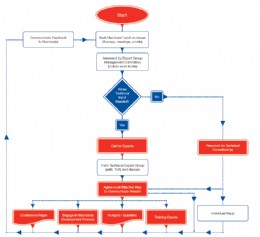BVAA's New Technical Expert Groups (TEGs)

Rob Bartlett

Martin Greenhalgh

‘Following our Strategic Review, we knew we had to take some emphatic measures to ensure the continued effectiveness of the BVAA technical service. Appointing Martin Greenhalgh was pivotal, but only part of the process, as contraction and consolidation in the industry meant the time was right to address how we managed the technical work, and usher in some priorities.’
‘Those familiar with standards work will know that traditionally a trade association identifies and addresses a technical issue and often then produces a ‘guideline.’ These guidelines occasionally get passed up to BSI for wider input, eventually to be transformed into a ‘British Standard.’ Often these BSs are then offered up to CEN (Europe) or ISO (International) for conversion into more globally accepted standards. Other countries’ national standards bodies follow similar processes too. All these fora can lead to tweaks, occasionally substantial changes, but many years of international co-operation has meant that most of the major product standards for our industry have now been developed and refined, and in many cases adopted / dual-numbered by several standards bodies.’
So why the change at BVAA?
Rob Bartlett explains… ‘Everyone runs their business in a much leaner fashion these days and company headcounts are typically much lower, and personal workloads much higher. Time is Money. This often means that fewer technical people with sufficient experience are available to participate in technical and standards work.’
‘While many current and new standards will be relevant in some way to a business, only those with a critical impact are therefore likely to prick people’s interest. Traditional standards management has been through broad-scoped, rather unwieldy standingcommittees, at trade association and BSI level. Such bureaucracy, breadth of coverage and ‘lost’ time has largely been a turn-off for members. Regrettably nonparticipation has meant key developments with standards have therefore often been missed or picked up far too late by individual experts to influence the document’s final content. Cue some disgruntled engineers, often with some unanticipated – occasionally substantial - costs for their employers.’
So what’s changed at BVAA?
‘A fundamental change in approach,’ says Rob. ‘We’ve initiated a series of “Technical Expert Groups” (TEGs) at BVAA. These will typically be much smaller, singlesubject, focussed groups with a life-span dependent upon their topic.’
‘As the graphic below shows, we’ll start by surveying members for input as each issue arises on the radar. A small technical management group will then assess the feedback, interest levels, relevance, etc. and decide how best to address the issue. A ‘TEG’ might then be formed, but whether they handle the work via correspondence, video conference or actually in person will largely be left to the individual TEGs to decide, as appropriate. Each TEG will have a nominated leader, terms of reference, and follow the BVAA Meetings Code of Conduct.’
Direct participation in say a standard’s development might then follow. Other outcomes however could include a simple “Technical HotSpot” (‘heads up’ advisory notice), a Conference paper to communicate information more widely, perhaps a BVAA Guideline or even a new Training Course if the subject warrants it. If it is decided that a draft standard (new or revised) doesn’t warrant association-wide input however then BVAA won’t participate. We will of course still continue to support any individual member who wishes to engage in drafting product standards that directly affect them, helping them draw on Government assisted travel funding, BSI support, etc. The main outcome however will be a loop back to communicate developments to the wider membership.’
‘Basic Standards – those that have an industry-wide impact, such as terminology, design, product testing and so on – will continue to be monitored closely as befits their importance. There have also been interesting developments with API Standards – often critical to the valve and actuator industry. For a time they were the subject of close inter-standards body co-operation and dual-numbering, but API is now pursuing a more parochial approach. They certainly tend to meet more regularly and develop standards more swiftly, however attending API meetings attracts no Government funding for UK delegates – a major issue.’
‘So again BVAA is stepping in,’ says Rob. ‘We’ve created a small fund to assist BVAA members in travelling to these meetings, which are often held in the USA. In return for a report of the meeting – to update their fellow members via the loop-back principle - a BVAA representative can mitigate the costs to his company, and of course receive reports on other similar meetings they cannot personally attend, from fellow members.’
‘Henceforth management of technical and standards issues through the TEGs should be agile, targeted, comprehensive yet streamlined, with high degrees of relevance and in-built feedback routes to the wider membership,’ concluded Rob.

| Telephone: | 01295 221270 |
| Email: | enquiry@bvaa.org.uk |
| Website: | www.bvaa.org.uk |
| More information on the British Valve and Actuator Association BVAA Member Directory Page |
Search related valve / actuator articles: British Valve and Actuator AssociationIssue 34News







-web.jpg)





